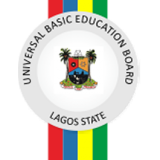EKOEXCEL, the innovative digital initiative launched by the Lagos State Government in 2019 to transform public primary schools, has continued to record impressive results, with three pupils from the state excelling in the recent National Common Entrance Examination (NCEE).
Managed by the Lagos State Universal Basic Education Board (LASUBEB), EKOEXCEL has radically transformed public primary education in the state. It has recorded tangible gains among teachers and pupils, leading to improved learning outcomes for pupils and more professional teachers.
The National Common Entrance Examination, NCEE, is for admission into the first year of Junior Secondary School, JSS 1, of federal unity colleges, administered to final year pupils of primary schools.
The examination was written on Saturday 7th May, 2022 in Nigeria, as well as Benin Republic and Togo.
A total number of seventy-one thousand, seven hundred and thirty-eight (71,738) pupils registered, with 34,030 being males and 37,708 being females.
Lagos state registered the highest number of candidates with 19,518, out of which 18,787 sat and 731 were absent.
The EKOEXCEL programme tracked the performance of Lagos pupils transiting to secondary schools in high stakes examinations, particularly the 2022 NCEE and 2021-22 Mock Common Entrance Examinations (MCEE), indicating that EKOEXCEL pupils had excellent scores.
While the overall best student in the NCEE conducted by the National Examinations Council (NECO) scored 201 out of 210, three pupils of Lagos public primary schools were just five points behind. Ayomide Daniel Ajayi of Hussey Military Yaba scored 198, Damilola Basit Araba of the same school had 197, and Deborah Ugbaha of St Georges Girls scored 196.
While Ugbaha came third among Lagos pupils who sat for the NCEE, she was first in the In-school examinations, including End of Term One and Two Examinations and the Term One Mock Examinations. Ajayi and Araba were second and third, respectively. Her outstanding performance also attests to the efficacy of EKOEXCEL’s methodology in boosting gender parity.
However, the trio were not the only successful Lagos pupils; others also had good scores, showing the significant movement of EKOEXCEL pupils towards proficiency by more than 20%. Of 53 pupils tracked and ascertained to have registered for the NCEE, 32 had excellent grades.
The results tracking showed that the 32 pupils from 22 schools surpassed the aspirational and proficient targets by 11.6% and 9.6%, respectively. Also, the threshold targets for Partially and Below proficiency were exceeded by 8% and 9.3% margins, respectively.
The impressive results also affirmed the efficacy of EKOEXCEL’s high-stakes examination success strategy involving coaching, common entrance preps and mock common entrance examinations.
Before the introduction of EKOEXCEL, academic gains for transitory students were gauged using the Lagos State Placement Test (LSPT). For this academic year, EKOEXCEL debuted its tracking of transitory students focusing on performances in High Stakes Examinations, particularly the National Common Entrance Examination.
Speaking to the report’s findings, LASUBEB’s Executive Chairman, Hon. Wahab Alawiye-King, expressed delight at EKOEXCEL’s positive impacts, particularly learning improvements among pupils.
“We are pleased with the performance of our pupils. It affirms that our methodology and processes are working and proves that Lagos is an exception from the recent UNICEF report that raised the alarm about poor learning outcomes in Nigeria’s primary education. With the support of Governor Babajide Sanwo-Olu, we have shown that we can improve learning outcomes among pupils with strategic interventions like EKOEXCEL.”
Alawiye-King assured that EKOEXCEL would not relent and that Lagos pupils would do better in the next NCEE.
Besides significantly increasing pupils’ learning outcomes and drastically reducing the number of out-of-school children in the state by enrolling them in schools through the ‘Leave No Child Behind’ policy, EKOEXCEL has also empowered teachers with new teaching methods.


